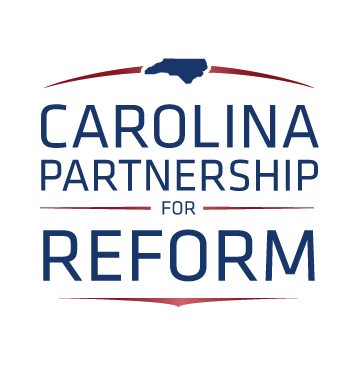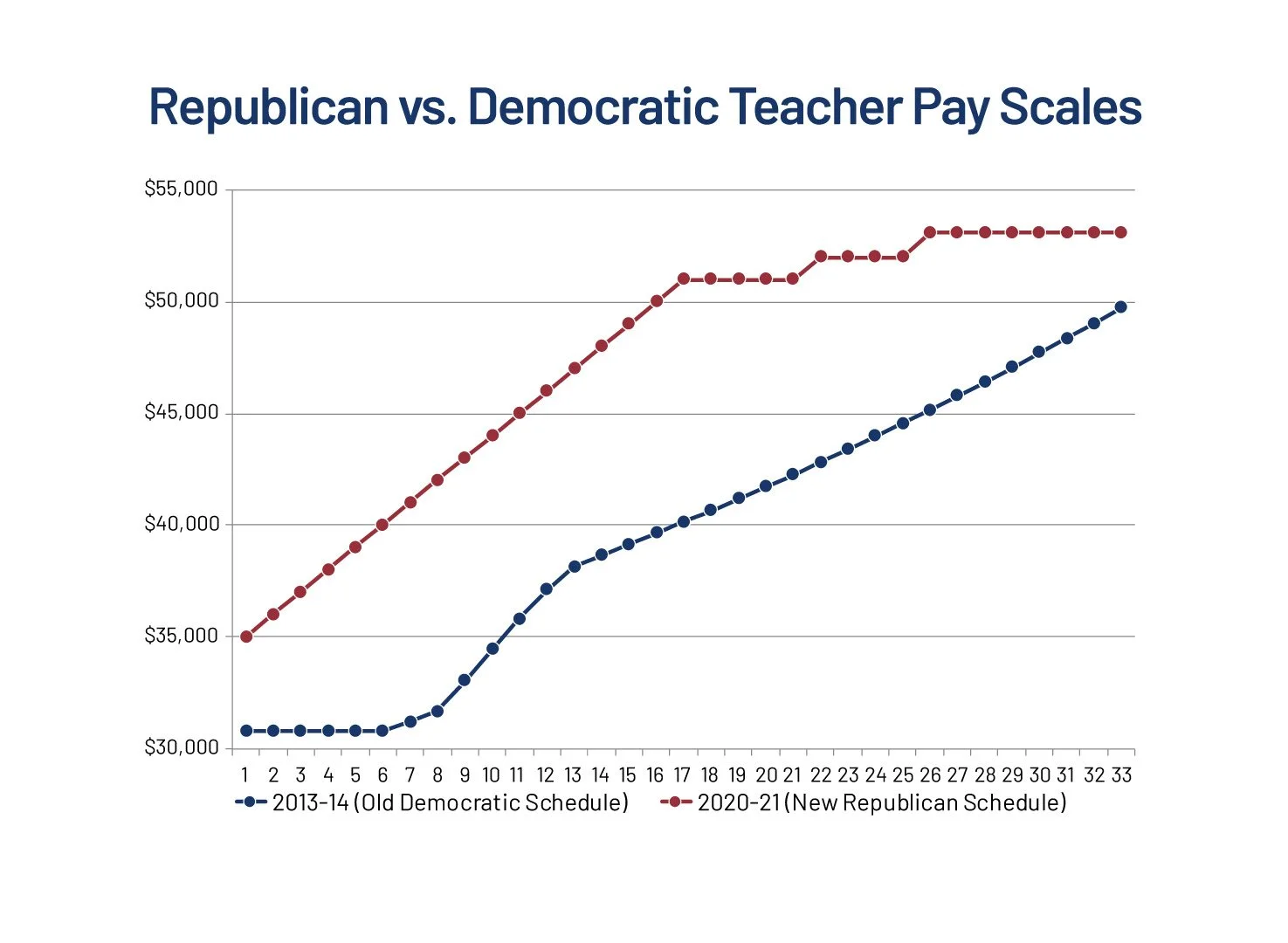Education Reform
Legislators from both parties worked together to make changes that put students first:
Invested an additional $3 billion additional state dollars in K-12 classrooms.
Created the Read to Achieve program for K-3 students to strengthen literacy by third grade.
Established a transparent A-F school grading systemto help keep parents better informed.
Provided funding to reduce class sizes in grades K-3.
Removed the cap on charter schools and created the opportunity scholarship program to provide more academic choices for families.
Created a new North Carolina Teaching Fellows program to attract and retain new teachers to low-performing schools and STEM courses.
One of the key planks of the Reform Majority’s plan to turn around North Carolina for our families and businesses was reforming education.
K-12 Education Spending
TEACHER PAY INCREASES
For years, the level of teacher pay has been one of the ways the public measures educational success in North Carolina. As a result, there was a concerted effort made to raise the average teacher pay across the state. The Reform Majority took the following steps to help teachers:
Reformed teacher pay by collapsing the antiquated, 32-step pay scale.
Passed teacher pay raises in each of the last seven years, totaling over 20%.
Raised starting pay by $5,000.
The average pay raise for the 2019-2020 biennium was 9%, bringing the average teacher salary in North Carolina to $54,606.
SOURCE: 2008-2020 State Budgets
For the record, average teacher pay raises for NC teachers have risen every year since 2013:
2014 7%
2015 3.8%
2016 4.7%
2017 3.3%
2018 6.5%
2019 2.0% (held up by veto of state budget by Gov. Cooper)
2020 1.9% (held up by veto of state budget by Gov. Cooper)
Maybe just as important, the Reform Majority addressed our schools’ leadership pay as they worked to increase principals’ salaries by 6.2% – providing more than $16 million to raise pay levels for principals in 2019.
SOURCE: Average pay raise calculated by the Fiscal Research Division. Pay raises for 2019-21 are from the 2019 budget bill H966, vetoed by Governor Cooper.
COLLEGE TUITION REFORM
The cost of attending a public university has been on the rise nationally, with tuition and fees steadily increasing. In 2016, the Reform Majority passed the NC Promise Tuition Plan, giving North Carolina students access to more affordable public higher education options. There are four main pillars to this new NC Promise law:
Guarantees no in-state tuition increases for a standard undergraduate college term (usually 4 years) at all 16 North Carolina public universities. This tuition guarantee would also apply to active members of the military based in North Carolina
Freezes student fees – often used to fund non-academic expenses – at all North Carolina public universities at current levels and limits future increases to no more than three percent per academic year.
Lowers tuition at select universities from the mountains to the coast to $1,000 per academic year ($500 per semester) for in-state students and $5,000 per academic year for out-of-state students beginning Fall 2018 at:
Elizabeth City State University
University of North Carolina at Pembroke
Western Carolina University
Directs $1.8 million annually to award up to 20 scholarships under the new Cheatham-White Merit Scholarship Program for students at North Carolina Central and N.C. A&T universities.
CHOICE AND CHARTER SCHOOLS
Opportunity scholarships and innovative public charter schools have helped create new and exciting educational opportunities for low-income or disabled students who are stuck in underperforming traditional public schools.
Soon after the Reform Majority ascended to leadership, the legislature allocated $10 million to launch a scholarship program that gave parents and families more educational options. And they lifted the previous legislature’s cap on the number of innovative public charter schools that can operate across the state.
READ TO ACHIEVE PROGRAM
Reforms passed in 2012 required students across North Carolina to read proficiently before the fourth grade, a benchmark proven to put children on a better path and help them achieve more promising outcomes.
The Read to Achieve law was improved in 2014 to offer flexibility to local districts and provide more accessibility for students.


